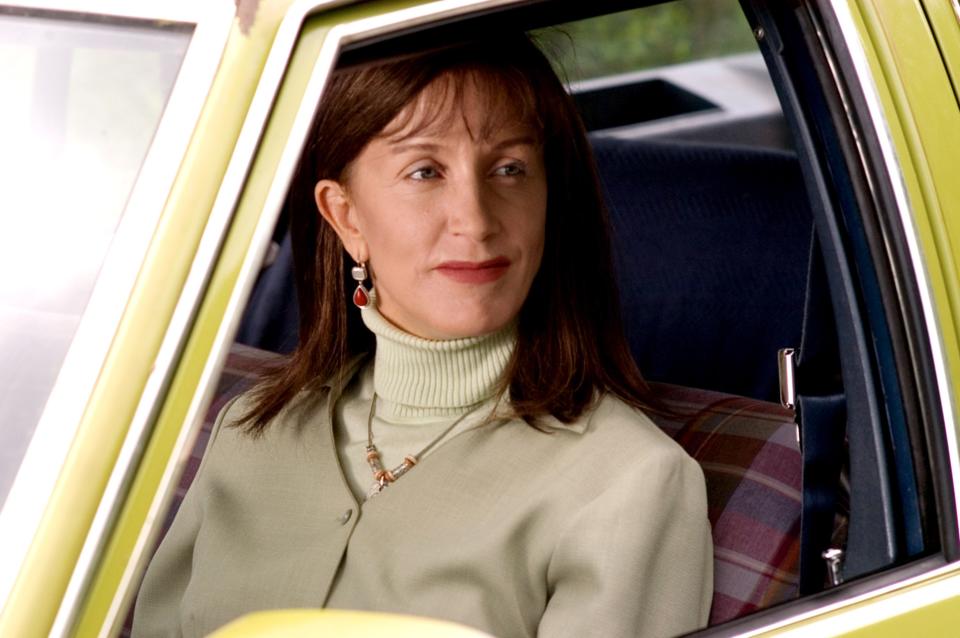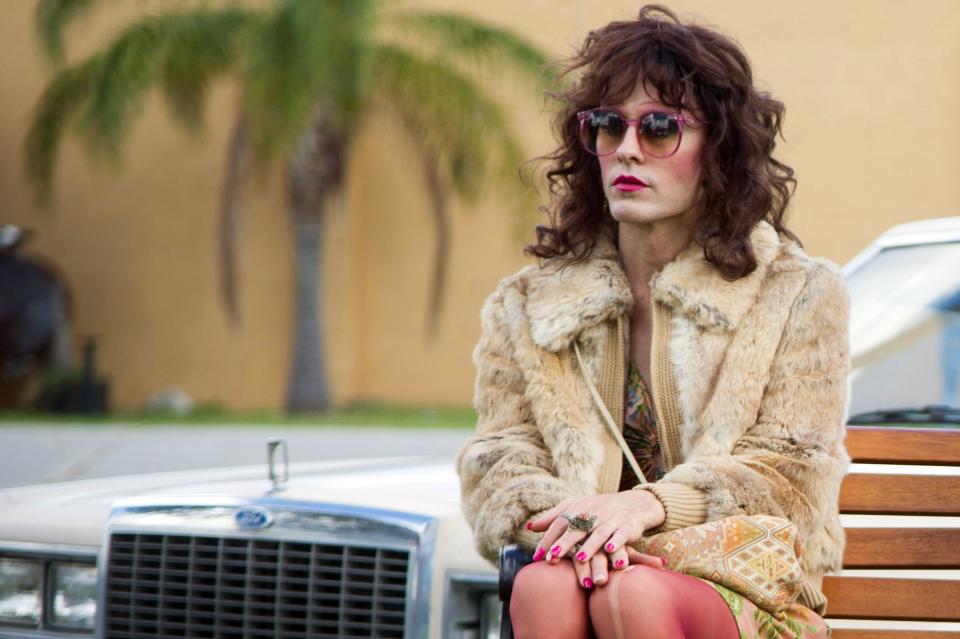Cisgender Actors Playing Transgender Characters: A Discussion
UPDATE: July 7, 2020—Halle Berry issued an apology about considering a role in which she would play a transgender man and says she will no longer play the part.
“Over the weekend I had the opportunity to discuss my consideration of an upcoming role as a transgender man, and I’d like to apologize for those remarks. As a cisgender woman, I now understand that I should not have considered this role, and that the transgender community should undeniably have the opportunity to tell their own stories,” she wrote on Twitter. “I am grateful for the guidance and critical conversation over the past few days and will continue to listen, educate and learn from this mistake. I vow to be an ally in using my voice to promote better representation on-screen, both in front of and behind the camera.”
"We are pleased that @halleberry listened to the concerns of transgender people and learned from them. Other powerful people should do the same. A good place to start is by watching @Disclosure_Doc to learn about trans representation in media," GLAAD responded on Twitter.
UPDATE: July 6, 2020—Halle Berry’s recent Instagram Live, in which she revealed she may play a transgender man in her next movie, has resparked the issue of cisgender actors playing transgender roles. It’s a debate that was succinctly shut down in the 2020 Netflix documentary Disclosure. See that video, below:
Now, continue on to read a conversation between two gender queer and transgender friends that we facilitated about this topic.
ORIGINAL STORY: In college my family was my group of queer friends, and we existed harmoniously 99.9% of the time. There's only one disagreement I clearly remember—and it was about the 2013 movie Dallas Buyers Club. In the film Jared Leto, a cisgender man, plays a transgender woman, a casting decision that was polarizing both with critics and with two friends in my college squad: Caleb, who identifies as gender queer, and Jensen, who identifies as a trans man.
Jensen took the affirmative: He thought Leto’s casting was completely fine if he was the best actor who auditioned. Caleb objected to the casting. I called them both up recently to discuss this topic again. While Jensen and Caleb still have the same opposing viewpoints, they see eye-to-eye on one issue: the need for better trans representation, overall, in Hollywood.
Read our full, unfiltered discussion, below:
Chris: I remember our group of friends getting into a debate about cisgender actors playing trans roles after Jared Leto in Dallas Buyers Club. Where do y’all stand on this topic?
Caleb: My usual feelings about cis actors playing trans roles is that it’s almost done in a way to make fun of the trans character or invalidate their identity. For instance, in Dallas Buyers Club with [Leto’s] character Rayon: It almost seems as though they went out of their way to make her look bad and trashy in most scenes and almost leaned into the “man in a wig” narrative. And I wouldn’t have an issue with a trans person looking “not so good” in Dallas Buyers Club if that [narrative] wasn’t a normal thing. Trans people sometimes do look bad; we’re people. But in almost every movie where a trans woman is played by a [cis] man, there seems to be little effort in feminizing her. That’s not to say that trans women need to be femme or that having a beard makes her less of a woman, but it’s one side of trans-ness that we’ve been fed over and over again in sort of a tragic way. Much like 70 years ago in pulp fiction novels [where] gay men and lesbian women had to be murdered or convert to straight by the end of the book, trans people usually end up in the roles of someone living with HIV/AIDS, a prostitute, or the butt of the joke.
Jensen: My position is that the actor who fits the role best and has the most skill should play it. I don’t think that just because someone’s trans that they should be handed the role if they can’t act. I find it exciting that our stories are finally being told—of course, there’s always going to be room for improvement in telling minority stories, but the fact that they’re being told at all is progress.
Chris: Caleb, to your point about cisgender portrayals often invalidating trans identities: Do you think it’s possible for a cisgender actor to understand a trans character’s full complexity? Or are all the roles better suited to trans actors?
Caleb: Oh, cis people can’t ever comprehend trans-ness—not to say that trans-ness is some otherworldly thing that no one could ever understand, but trans people are still working out what trans-ness is and how we interact with our own and what we want our community to be. If we’re still working it out and living it every day, I really don’t think that an actor, even a talented one, can really understand all the sides of the identity he or she is playing. For where we are right now in our culture and in time, I think only trans actors should play trans roles.
Jensen: I will agree with [your] single point, Caleb: I think that there needs to be a wider variety of storylines about trans people, especially trans women, but I still don’t think making the roles solely for trans actors is the way to go. I think we also have to keep in mind reaching a wide audience when trying to gain some understanding from cis people, and that comes with names that have large box office pull. Right now there’s only a handful of trans actors who have large pull with their names, and they might not fit every single storyline they are presented. And to answer the question about complexity and fully understanding: I don’t think, unless you are trans, that anyone could ever fully understand what we go through, but I also think that cis actors understand the weight that comes with taking such a role. I believe that anyone who would take on such a role would do so with an open heart toward our community and want to help us reach people and open minds.

TRANSAMERICA, Felicity Huffman, 2005, ©IFC Films/Courtesy Everett Collection
Chris: The box office conversation is interesting. Caleb, what are your thoughts on that?
Caleb: I understand the temptation for a director or casting company to want to cast big names in trans roles. Dallas Buyers Club wouldn’t have had the pull it had if it didn’t have Leto. I think there are [better] examples of cis people playing trans roles more successfully than Dallas Buyers Club, but I hate that [they] get some sort of “bravery badge” for doing so. But back to the box office point: I think the movies want the money boost, so they put cis actors in these roles so that people kind of think, I want to see Leto playing a trans woman. I think it’s exploitative, especially with the narratives that we’re fed in these roles.
Jensen: I will agree that the narratives surrounding the trans community need to be better—100 percent. But I will also say those producers aren’t looking for just a “trans actress.” Characters have a specific age and race, and Laverne Cox, Jamie Clayton, Alexandra Billings, Candis Cayne, Jen Richards, Calpernica Addams, Kitana Kiki Rodriguez, Mya Taylor, or some of the other relatively few out trans actresses might not fit the part.
Caleb: And that’s fine, but why not cast more trans people than that? Why not bring in new talent? Because I know that more trans people than that are auditioning and not getting roles—roles that are often given to cis people. Specifically for trans women, these roles are often handed to men. I’ve even been happier to see cis women playing the roles of trans women because at least a woman is playing the role rather than someone who is completely removed from both trans-ness and womanhood.
Jensen: I’m not personally a casting director or producer, so I can’t answer those questions. If I was, trust me: I would be pushing for more new faces. I’m sure that there are people who are talented and being overlooked, but I also still stand by my statement that we need to be able to reach people when telling our stories. We need to have cis people show up to the theater, and that means big names. I also will say that in the average person’s mind, when they think of great acting, they think of an actor playing a role that she or he is not comfortable with, that tests their skills as an actor. A straight person playing a nonstraight role, be it gay, bi, or transgender, is just a testament to their ability to act—if they perform exceptionally well. And yes, maybe we should be moving more toward cis women [playing trans roles] than men since it creates so many issues. I even enjoyed Felicity Huffman playing a trans waitress in Transamerica. Maybe if we can’t have trans women playing trans roles, then at least cis women will help stop some of the “man in a wig” portrayals you stated earlier.
Caleb: I disagree. I don’t think we should be okay with queer roles being seen as a test of a cis-het [cisgender, heterosexual] actor’s skills, especially not when we’re trying so hard to work on problems in the representation department and show the mainstream world the wide variety of queer people that exist. We need to showcase more queer talent and let trans people tell these stories and take more input from trans people about these stories and roles to make sure that, in this crucial time of transgender stories being new and educating the public, we get these stories right and showcase a [variety] of trans voices.

DALLAS BUYERS CLUB, Jared Leto, 2013. ph: Anne Marie Fox/©Focus Features/courtesy Everett Collection
Chris: Actors tend to get the brunt of the criticism when these casting decisions happen, but there’s an entire system behind why they’re cast. It’s an agent who puts the actor up for the role, a studio that backs the decision, casting directors who filter who gets to audition, and a patriarchal entertainment industry that prioritizes male talent. Do actors deserve criticism for simply accepting a role? Or should the outrage be directed elsewhere?
Caleb: I think we can certainly hold the entire system accountable. Everyone involved in making a movie that features queer, trans, or gender-nonconforming people needs to be educated on those topics and issues and should know that representation is a huge issue for us right now. Getting our stories right matters so much. I want to have movies about my community and trans people, but I want it done right. I want a [variety] of stories with complex characters who are imperfect and human, who love and are lovable, who aren’t always sex workers, who aren’t the butt of the joke, and who are more than just their transition. I want those movies and the people responsible for making them [to be] just that: responsible. And if the actors and actresses playing these roles win awards and thank “God” but don’t thank the trans people who live authentically and bravely every day, then yes, they should be roasted.
Jensen: Hollywood has a serious problem highlighting trans talent. The industry itself needs to learn and evolve faster on how to improve the way it tells trans stories. I don’t think it’s the actors who should be criticized. They are trying to tell stories, make art, and do what they love, which is perform to the best of their ability. If anything, I think most of the actors do thank the trans community.
Originally Appeared on Glamour

